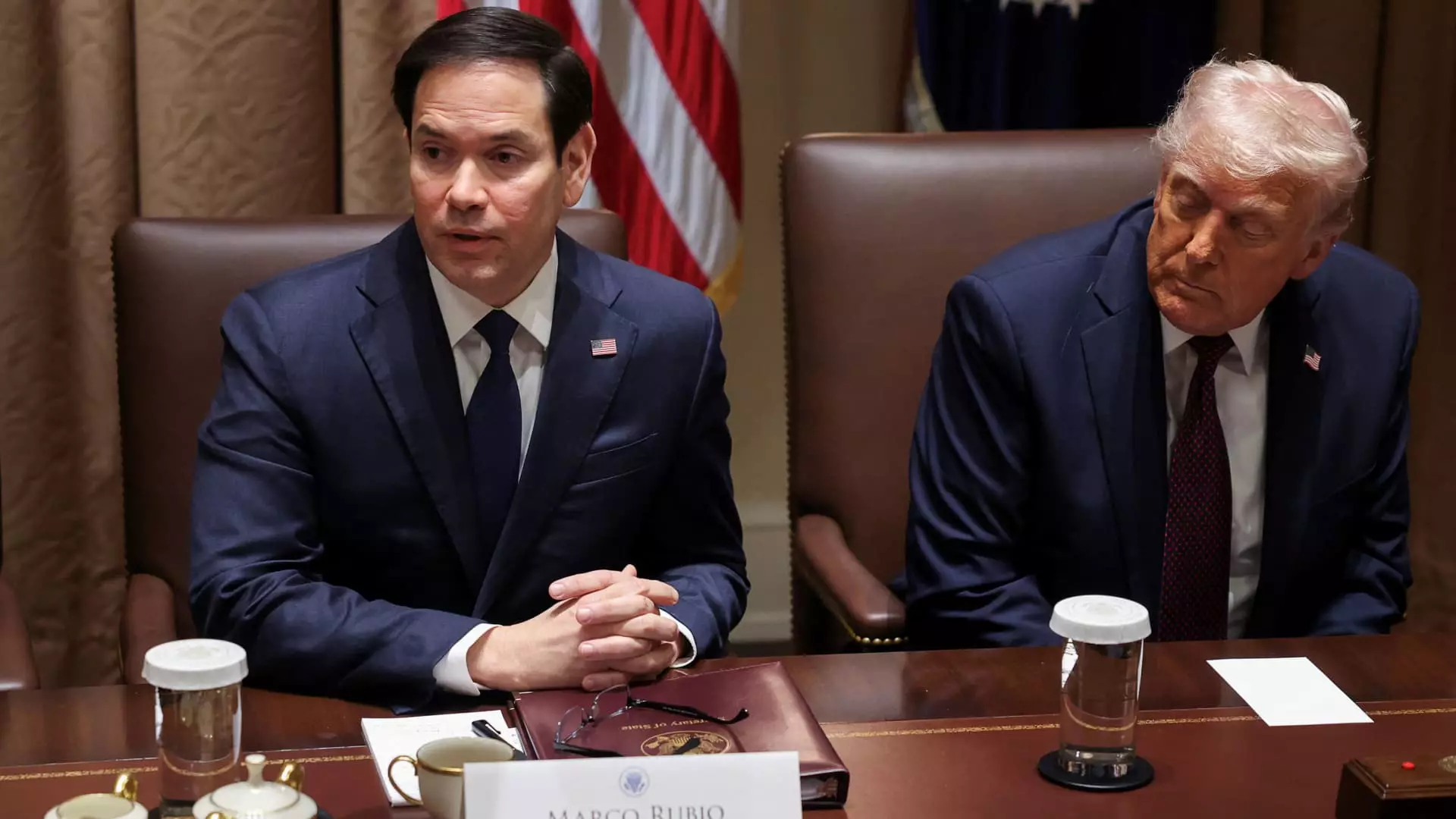The political landscape of the United States has always oscillated between diplomacy and isolationism, often influenced by those in power and their prevailing ideologies. The Trump administration’s leaked draft executive order signaling sweeping changes to the U.S. State Department marks a jarring departure from decades of established diplomatic practices. With a focus on a so-called “disciplined reorganization,” the proposed changes are not just potent in their implications; they suggest a fundamental misunderstanding of the role of diplomacy in a globally interconnected world.
This 16-page draft, painfully indicative of an administration that views diplomacy as a cumbersome hindrance rather than a strategic asset, calls for the closure of American embassies in Southern Africa and the obliteration of pivotal bureaus focused on democracy and human rights. It’s a staggering indication that the values of human rights and international cooperation, which have long been cornerstones of American foreign policy, are being swept aside in favor of a draconian, America First doctrine.
Chilling Cuts to Global Presence
The recommended cuts to embassies and consulates in Sub-Saharan Africa, along with an overarching reduction of diplomatic presence in Canada, signal an alarming withdraw from regions that require engagement, cultural exchange, and support from the United States. The rationale of streamlining and cutting “waste” belies the reality that diplomacy, particularly in developing regions, is not merely about budgets and efficiency; it is fundamentally about fostering relationships, stability, and mutual understanding.
Eliminating offices focused on crucial issues like climate change, women’s rights, and human rights reveals a startling trend towards neglecting the very global crises that demand U.S. leadership. Such shortsightedness undermines years of progress and threatens to diminish America’s standing as a beacon of hope and accountability on the world stage.
Reworking Diplomacy with a Political Lens
By seeking to fundamentally alter the process through which American diplomats are selected and trained, the draft executive order introduces a politicization of the Foreign Service that is deeply concerning. The abandonment of the Foreign Service Officer Test in favor of an evaluation steeped in political alignment represents a dangerous precedent. This not only risks the integrity of the diplomatic corps but also raises the specter of replaceable “yes men” who would prioritize loyalty to the administration over the nuanced and strategic thinking that effective diplomacy requires.
This shift is indicative of a larger trend that seeks to intertwine loyalty to the president with professional qualifications—a disheartening formula that risks exhausting the well of talent within the Department of State. The impact of these measures may not only detrimentally affect U.S. diplomacy but also embolden adversaries who thrive on discord and destabilize international relations.
A Precarious Future
The impending restructuring poses a chilling challenge for current Foreign Service Officers and civil servants, who are presented with a distressing ultimatum: conform or face voluntary separation through a one-time buyout. The implications of such a choice create a disheartening atmosphere rife with fear and uncertainty, pushing out experienced personnel who have dedicated their careers to the service of diplomacy, while inviting in those who echo the administration’s narrow worldview.
As we stand on the brink of this “reorganization,” the very principles that underpin American diplomacy—understanding, cooperation, and advocacy for human rights—are at severe risk of being relegated to the annals of history. The consequences of these actions will likely reverberate through years to come, as the U.S. diminishes its voice and credibility on the global stage.
The draft highlights a dire reality: an administration that prioritizes isolation over engagement, simplistically cutting ties with the world while expecting global challenges to somehow resolve themselves. The reckless pursuit of an America First ideology threatens to undermine years of diplomatic effort and progress—a narrative that, if allowed to unfold unchallenged, could haunt American diplomacy long after this administration has left office.


Leave a Reply